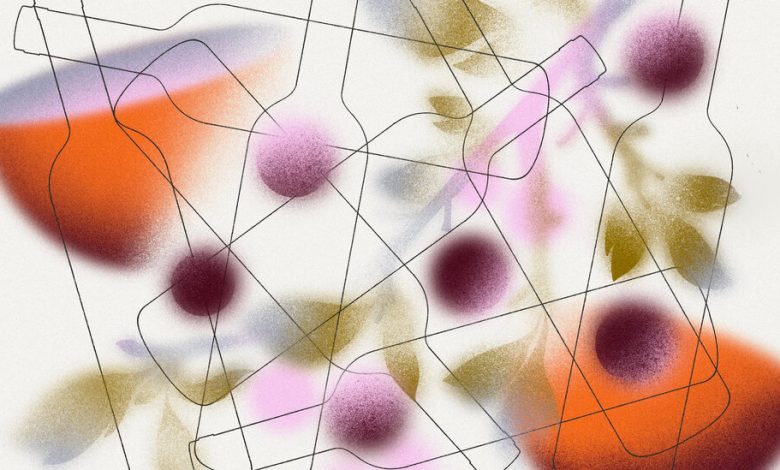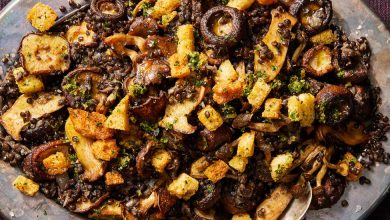How to Define a Good Wine? It’s Complicated.

What makes a wine “good”?
The answer seems self-evident: If it tastes good, it must be good. But as with so many things involving wine, it’s never that simple, starting with the word “good.”
Good can be a complicated idea. Does it mean, as I suggested, a wine that tastes good? Or maybe a wine that’s good for you? Wine is not just a product in a bottle on a store shelf. It’s the culmination of a long process with many elements that all must coalesce to create a delightful, surprising beverage.
Does a good wine need to come from a good terroir, that winning combination of place, climate and culture? Does it have to come from a grape variety judged among the best? What about the vintage, the farming and the winemaking, not to mention the environmental, labor and social practices of the winemaker?
Everybody who loves wine has their own way of answering these questions. Since I spend a lot of my working life judging and recommending wines that I think are good, you might rightly want to know more precisely what I mean when I say a particular bottle is a “good wine.”
So, must a good wine taste good?
Of course. Who wants a wine that doesn’t? It’s not merely the flavor of a wine but its texture, liveliness and vibrancy, elements that all must balance out. They should invite you in, not smack you over the head.
But good wines don’t taste good all the time. Some bottles are intended to be aged at least for a few years. It’s become a bit of a wine cliché to say that wines should taste good at all stages of their life, but a young Bordeaux or Barolo, intended to age and evolve for 20 years or more, is simply not going to be delicious after three years, unless you enjoy an astringently tannic mouthful. So, sometimes evaluation is a projection into the future.
How a wine tastes also depends on the occasion and the context in which you drink it. If you are sharing a casual meal at home with family or friends, an easygoing wine will taste great. That same wine might feel out of place at a more meaningful, celebratory or solemn occasion, or even at a meal that took a lot of thought, effort and creativity to put together. These moments would benefit from wines that match their importance.
Though the occasion is not directly related to the quality of what’s in the bottle, the context in which you open wine will affect how you perceive it. Some may see this as wine heresy, but after many years of opening bottles, I’ve come to believe that matching a wine to the occasion is more important than precise pairings with specific foods.
Terroir
Does a good wine have to come from a good terroir? This is not a simple answer. We may understand terroirs like Burgundy that have been studied for centuries, but we also enjoy wines made in other places without a long history, or that have not been evaluated as intensively. This means that we don’t always understand the quality of terroirs in less-familiar places.
That said, good terroir is never a guarantee. It merely indicates the potential of grapes grown there. Great terroirs can make profound wines, but not if the farming or winemaking was poor, or if the bottles have been stored badly. In the same way, wines from lesser terroirs can make delicious wines, though they may not have the potential to be great. But we don’t always need great wines. Sometimes, an easygoing wine is preferable.
Jean and Pierre Gonon make the highly coveted Pierre Gonon wines in St.-Joseph, in the Northern Rhône Valley of France. Jean once explained to me the difference between Gonon’s St.-Joseph, made from an excellent terroir that requires arduous farming, and its Les Îles Feray, a wine from the easier-to-farm flatlands in the Ardèche. The Îles Feray tasted like syrah, he said, while the St.-Joseph, also made from syrah, tasted like the place in which it was grown. The wines provide different experiences for different occasions.
Grape Varieties
Grape varieties are also important, but not in the way that was long assumed. Wine people used to speak of “noble grapes,” as if a small group of familiar grapes were inherently better than the rest. But in recent years we’ve come to understand that grapes long dismissed as mediocre, like aligoté or silvaner, can make fascinating, delicious wines when grown in better terroirs and farmed and made with care.
Grapes should not be underestimated because of stereotypes or conventional wisdom, nor should they be judged harshly because you once drank a bad bottle. As with terroirs, we don’t yet understand the potential of many varieties. Even grapes that have long been scorned can make the sort of wines you want to keep drinking because they are so enjoyable.
Vintages
Vintages are undeniably important to the character of wines, but “good” or “bad” vintages mean different things to different people and in no way define what’s in the bottle. Some of my favorite recent vintages, like 2021 in Burgundy or 2011 in Napa Valley, are conventionally thought to have been poor because the weather made farming difficult and kept yields low. But, from good winemakers, the wines were superb.
I am always going to be more interested in the producer than the vintage. Good producers find ways to work in harmony with vintage conditions, never trying to force an outcome in years that will not naturally yield the desired style. Because good producers assess what nature gives them rather than dictating styles, they are far less prone to resort to technological manipulation to achieve what does not come freely.
Climate Change
Farming and winemaking practices are issues that go beyond simply making the best possible wine. Can you make good wine if you farm chemically, using poisons to control weeds and pests? Yes, of course. But that wine could be even better if the grapes were farmed with less invasive techniques — say, organically, biodynamically, regeneratively or in that constellation of sustainable techniques.
How we treat the environment, particularly in this critical era of climate change and diminished resources, directly affects other people as well as the natural world. I find it difficult to enjoy wine that I know is made in ways that are damaging or in conflict with all we now know about our fragile habitat.
Similarly, we are far more aware today of the plight of many agricultural workers around the world. Farming is grueling, and often the only ones who choose to do it are easily exploited migrant workers. In 2023, for example, French authorities were investigating allegations of human trafficking in Champagne. It’s not easy for consumers to monitor working conditions at wineries, but it’s something that I am aware of and want to keep in mind.
Is Wine Good for You?
A side issue for me is whether wine is good for you. I don’t drink wine because I think it is healthful, though I find it delicious and life-enhancing, which I imagine offers some psychological benefit. But recently we’ve seen many articles asserting that consuming even a small amount of alcohol is harmful to your health.
Nobody ought to deny that alcoholic beverages can be dangerous if abused. If people wish to take a dry week or dry month, that’s great. I’ve certainly decided on occasion to drink less wine, as I might occasionally cut down on desserts.
Life is full of risks, and each of us individually must decide what’s right for us, whether drinking a glass of wine or cycling on busy urban streets. If that means fewer glasses or occasional dry spells, fine. But no need to demonize what many people find so appealing and enjoyable.
Follow New York Times Cooking on Instagram, Facebook, YouTube, TikTok and Pinterest. Get regular updates from New York Times Cooking, with recipe suggestions, cooking tips and shopping advice.




